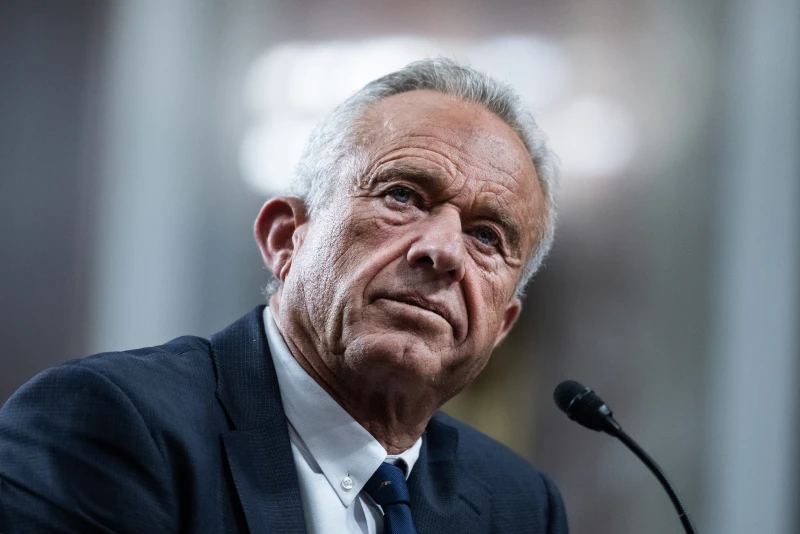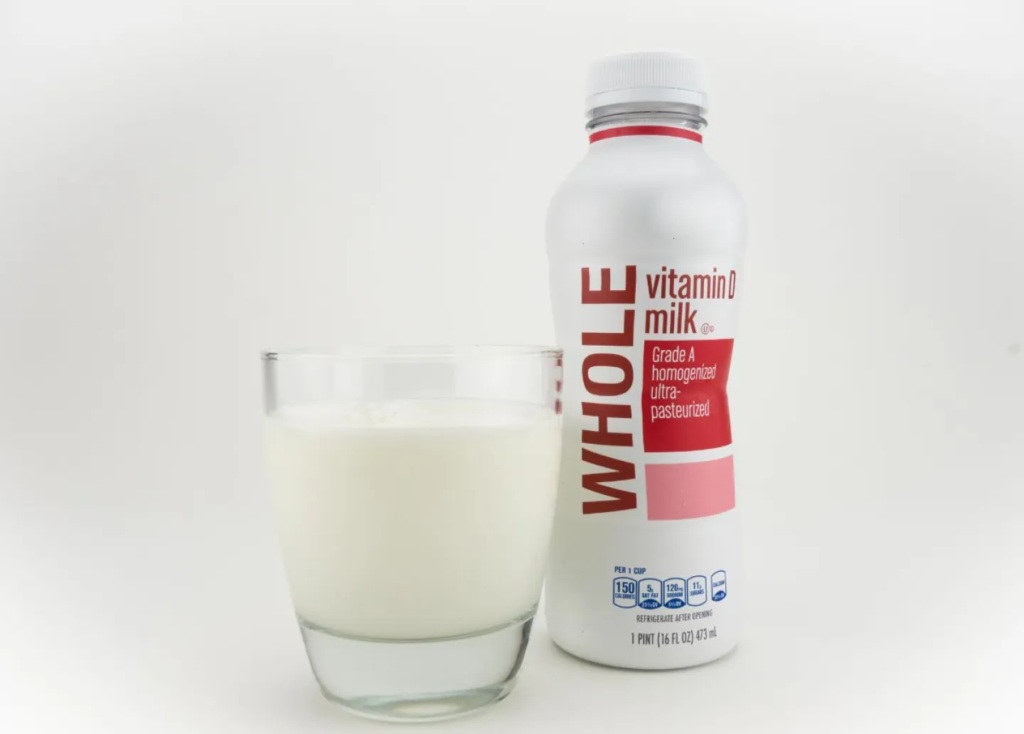Robert F. Kennedy Jr.’s appointment as Secretary of Health and Human Services has some farmers wondering—will he be a champion for real dairy or a source of controversy? With his strong support for whole milk but a divisive stance on raw milk, his impact on the industry is still up for debate.
Robert F. Kennedy Jr.’s confirmation as Secretary of Health and Human Services (HHS) has sparked a lively debate in the dairy industry. While some see his “Make America Healthy Again” stance as a win for dairy products, others worry about his controversial views on raw milk and ultra-processed foods.
The big question is — will RFK Jr. be a friend or foe to the dairy industry?

RFK Jr.: Catalyst or Controversial Figure?
RFK Jr. has emerged as a polarizing figure whose name is now associated with a broader call for re-evaluating nutritional policies. His willingness to challenge long-standing dietary guidelines — particularly the vilification of fat — has put him at the center of a broader push to rethink what’s truly “healthy.”
While some see his rhetoric as a much-needed shake-up that could benefit both dairy producers and consumers, others worry his controversial positions could lead to increased regulatory uncertainty and public health risks.
Newly appointed Secretary of Agriculture, Brooke Rollins, recently sat down with Farm Journal at the Top Producer Summit and shared her thoughts on RFK Jr.’s impact on agriculture.
“I know there’s a lot of concern in the community, and I understand that with the confirmation of Secretary Kennedy, RFK Jr., at HHS. Some of the things he has said in the past, I know, if implemented, would be devastating for a lot of our farming community,” Rollins said. “I believe, though, and maybe it’s the optimist in me and in the relationship that he and I have built, I have found him to be extremely reasonable.”
Despite concerns about Kennedy’s past statements, Rollins remains hopeful that open dialogue and collaboration will help navigate any policy disagreements.
“I believe he was very truthful and sincere when he said we will work this together. Will we have disagreements? Probably so. But when we do, we just take them to the President,” she Rollins said. “There may be a few of those [disagreements] in the coming months and years, but I am more confident than ever before that he understands the implications — at least a lot of them — of what would happen if some of these more bold ideas of his would get implemented.”
While policy clashes are inevitable, Rollins sees Kennedy’s appointment as an opportunity to drive important discussions — particularly on issues such as childhood obesity and nutrition policy.
“I think what Secretary Kennedy represents is a new day in America,” Rollins said. “We have a chronic childhood obesity disease issue in this country, and his focus on nutrition is really important. I’m looking forward to working with him on things like the food stamp program and the nutrition programs out of USDA. We’re going to be forced to work together, whether we want to or not, on dietary guidelines and other things. There’s a lot of work ahead between the two of us, but I remain optimistic we will get to the right place for our ag community.”
Kennedy’s Stance on Raw Milk
Kennedy has said he only drinks raw milk, and his recent endorsement of raw, unpasteurized milk has raised eyebrows among public health officials and industry leaders. He has criticized the Food and Drug Administration (FDA) for its stringent regulations against raw milk. In fact, Kennedy has referred to the FDA’s regulations on raw milk as part of the agency’s “war on public health.”
However, the FDA and numerous health experts warn consuming raw milk poses significant risks, including exposure to harmful bacteria that can lead to serious illnesses. Promoting raw milk could potentially result in increased health incidents, tarnish the dairy industry’s reputation and invite stricter regulatory scrutiny.
His Case for Whole Milk
While Kennedy’s positions on raw milk have sparked debate, his views on nutrition align with those advocating for a return to full-fat milk. The push for whole milk in schools — a movement that recently saw bipartisan support in Congress — has gained traction, with many arguing milk fat is not the enemy it was once made out to be.

“Fat in milk is not a health risk,” noted Gregg Doud, president and CEO of the National Milk Producers Federation (NMPF), during a recent Farm Journal Unscripted podcast, “The majority of both parties in the House of Representatives recently agreed we need to get whole milk and 2% milk back in our schools in this country. I mean, I can’t think of something that’s more make America healthy again than this topic.”
RFK Jr.’s support of whole milk comes at a time when fluid milk is experiencing a resurgence, signaling a shift in consumer preferences toward full-fat dairy products.
“Last year, for the first time in 30-some-years, fluid milk consumption is actually on the uptick in the United States,” Doud said. “I think this whole conversation [on whole milk] is causing consumers to turn a corner — and we have to help them understand whole milk is not a bad thing. It’s something us farm kids have known forever.”
A Return to Fat and Flavor?
For decades, dietary guidelines steered consumers away from fat. However, that narrative is shifting. RFK Jr. has positioned himself as an advocate for real, minimally processed dairy products, arguing foods such as butter and whole milk have been unfairly demonized for decades.

Supporters argue the full-fat versions of milk and butter not only taste better but also provide essential nutrients being lost in a sea of processed alternatives.
“We had this whole conversation decades ago that eggs and bacon and butter were bad for you. I don’t know how we got off on this, whether it was the dietary guideline conversation, but I think it got totally off track. I agree with [RFK’s] notion that we have to get this realigned again.”
This shift in perspective comes at a time when butter consumption, both in the U.S. and globally, is on the rise.
“Look at butter consumption in the U.S. and in the world — it has been a driving force for dairy,” Doud noted. “We have completely changed dairy production in the U.S. for more solids and more butterfat. The demand for it is there.”
The Limits of Kennedy’s Influence
While RFK Jr. is a strong advocate for rethinking nutrition policy, his ability to directly influence federal dietary guidelines is limited. Although his position at HHS allows him to push for changes, the authority to revise the nation’s Dietary Guidelines ultimately lies with USDA, not HHS.
Nina Teicholz, author of “The Big Fat Surprise: Why Butter, Meat and Cheese Belong in a Healthy Diet,” recently touched on this during a podcast with NMPF.
“There’s a lot of support for changing our nutrition policy in various ways, in ways I consider to be good,” Teicholz said. “I know there’s support for bringing whole milk back to schools, and I think that will be supported by Bobby Kennedy. But really his whole focus of control is going to be about drugs, healthcare, all of the domain of HHS. And the action on food and dietary policy is going to happen at USDA.”
So, will RFK Jr. be a friend or foe to the dairy industry? The answer isn’t entirely clear. On one hand, his push for whole milk and full-fat dairy products aligns with what many in the industry have been advocating for, especially with growing support for bringing these options back into schools. On the other hand, his stance on raw milk and some of his broader views on nutrition policy could bring some challenges and uncertainty.
One thing is for sure though – RFK Jr. is shaking up the conversation about food, health, and nutrition.
Stay informed on all the latest news updates.


